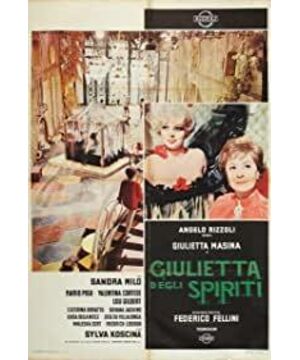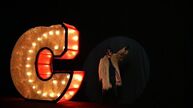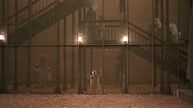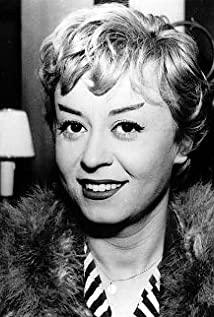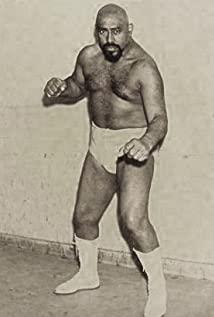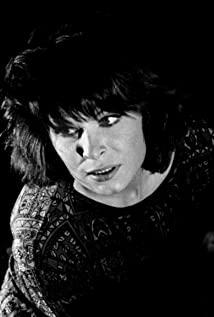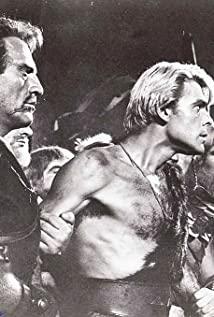Female characters have always been an important element in Fellini's films. "Juliet and the Devil" is Fellini's first full-length color film in which he sees the world from a female perspective. It incorporates almost all the elements of Fellini's dream films: psychoanalysis, female characters, vagueness and reality, and stream-of-consciousness style. Rather than saying that Giulietta Masina is the absolute protagonist of the film, it is better to say that the film is made for her. Whether or not Giulietta likes it, Fellini insists that "Juliet" is interpreted by Masina. the most specific and representative roles of But Masina did not agree with Fellini's approach. "She repeatedly gave in rebelliously and after a long resistance, as if sensing that she was about to give life to something deep within her that she had always rejected. First of all she hated Her character's costumes, eyes, and disguise. It's like a Juliet who says 'no' next to a passionate, cooperative, hard-working Juliet." What makes Juliet most dissatisfied is her appearance in the play and the future of her role. The protagonist of the film, Juliet, is a typical Italian woman with a high education. She is deeply influenced and bound by religion and traditional concepts of marriage. For her, her husband and marriage are everything. When she finds that the actual marriage does not bring her the expected happiness, she chooses to escape into her own memories and mysterious world. The role of Juliet has a strong passivity. Masina regards Juliet's performance as an "unconscious resistance", refusing to be Juliet in the film, and she has a deep fear of this possibility happening to her. Regarding Juliet's future, Fellini's idea is that "after being abandoned by her husband, she opened the door to communicate with the outside world. Since then, she has gained the freedom to find herself. She can freely develop her inner life and outer life at will. Life." Here hides the shadow of "individualization" in Jung's analytical psychology. Fellini believes that Juliet's alone state at the end of the film means the discovery of individuation, and what she fears most - her husband's betrayal - Now it seems like a gift from God to Juliet. Before "Juliet and the Devil", Fellini had been exposed to Jung's theory, so he put the theory that people should turn from extroversion to introspection in middle age into the film, "Eight and a Half" is a male artist seeking The process of individual liberation, and "Juliet and the Devil" is the female version of "Eight and a Half". According to Masina's idea, Juliet will become unhappy and will not look for herself. From a realistic level, this possibility is more likely to happen. The heroine's life has always been tightly bound by religion and marriage. entangled, and once these two things disappear, she is very likely to lose her direction due to losing her center of gravity. Although Fellini later thought that Masina's idea seemed more reasonable, his dream films were based on the pursuit of individual freedom and individuation. , it is also an opportunity to liberate oneself.
A cheated wife always tries to bond with an unreliable husband, but is doomed to fail. They have the same identities but have their own characteristics: Juliet has a good heart, is deeply infatuated with her husband, dreams of establishing an ideal and stable relationship with him, and will continue this relationship into the future; the wife of the troupe master has a strong maternal nature , she is happy to take care of her "little man" and enjoys this state very much; Emilia is good at dealing with practical mundane affairs, she is her own boss, and she has a few employees under her. Can provide a livelihood for others. The evolution of the wife's character can be found in the film: from a victim, a Mediterranean housewife, to a more sympathetic and at the same time more dynamic character who speaks from her own stand and speaks Ability to make difficult decisions independently. This is not only a personal development of female characters, but also a reflection of Fellini's growing sympathy for Italian married women.
Juliet is not only deceived by her husband, but also deceived by social stereotypes. She has almost no way out. Masina's hidden worries about the character's future are not unreasonable. The end of the film is open-ended, an allegory of individual liberation. Juliet in the play gets rid of the "devil" in her heart, and Julieta Masina outside the film successfully gets rid of Gersomina ("Devil") in the performance. The Great Road) and Kabylia (Nights of Kabylia).
View more about Juliet of the Spirits reviews


